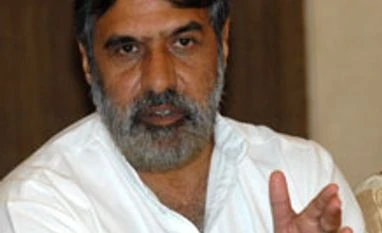'We do not want the ban to continue. All mining activities are not illegal. Mining as such is an important industrial activity. If we have exportable surplus then we must export after meeting the demand of domestic industry,' Sharma told reporters after the meeting of Board of Trade adding that the government is also considering reducing the export duty.
Sharma said that iron ore mining is about 200-225 million tonnes and consumption is only 95 million tonnes. Currently, the export of iron ore attracts 30 per cent duty. In 2012-13 India exported around 18 million tonnes of iron ore, which was the lowest ever.
More From This Section
'Exportable surplus is always there particularly with iron ore fines which we were exporting in huge quantities. Palatisation capacity in India is still limited. Indian steel industry is developing and evolving, what is mined have to be exported or has to be consumed because it is environmentally hazardous,' he said.
He added that the mining sector is labour intensive and employs a large number of people from the poor and backward regions of the country.
'So it should be restored and export should be encouraged because the country needs substantial foreign exchange reserves. We will be moving in that direction. I and the finance minister are confident of this and steps will be taken,' he said.
Iron ore mining and exports was banned by the Supreme Court as incidents of illegal mining came to light. Last week finance minister P. Chidambaram said iron ore exports should encourage and that it not viable to sit on vast reserves at a time when the country needs foreign exchange.
This proposal got a push last month when the prime minister’s office suggested increasing export of iron ores.
However, the steel ministry is against such a move because it believes that domestic steel industry will be adversely affected if the ban is lifted. Before the ban was imposed in 2011, India was the third largest exporter of iron ore. It has now become a net importer of iron ore.
)